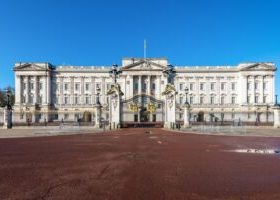Labour should be worried. That’s not to sound like a gurning tabloid—we’re better than that—but the early signs are far from reassuring.
Since April, when the non‑dom knockouts arrived and Chancellor Rachel Reeves scrapped the centuries‑old offshore loopholes, stories have been piling up: wealthy directors departing, shell‑companies relocating, ultra‑rich heirs re‑domiciling elsewhere. A Financial Times investigation found that nearly a third of non‑dom clients are now decamping to UAE, Italy or Switzerland. Henley & Partners has predicted a loss of 16,500 millionaires this year alone—evacuating around $92 billion in investable assets.
That’s the headline. But is it the full story? Dozens will always shuffle off, and some early sell‑offs were likely opportunistic, triggered by panic‑selling in overheated London markets. Indeed, in 2017 when Osborne tightened non‑dom rules, there was a spike—but by 2019 emigration had fallen back below pre‑reform levels. That suggests the real economic damage comes not from those who’ve bolted already, but from those still sitting on the fence, ready to skedaddle at the next tax trumpet.
So, what might Rachel Reeves do? Reports suggest she’s already reconsidering charging inheritance tax on offshore holdings after ten years of residence—the element deemed most punitive. Expect softening. The Treasury is apparently exploring “tweaks without backtracking” to stem capital flight. In plain English: make it slightly less unpalatable, so the bleats from Mayfair aren’t quite so loud.
One might say: why worry about millionaires offloading handbags and primary residences when ordinary UK voters are left draped in austerity? The hard truth is that non‑doms aren’t merely sitting ducks; many are significant investors, philanthropists and employers. Some weigh in with a hefty £400,000 annually in tax contributions and average asset investment of £118 million. The FT warned that a mass exodus could burn a hole in public finances and shutter growth strategies .
That said, losing a tranche of “wealth parkers”—those who simply stash foreign money in London—might be a blessing. New Statesman’s Will Dunn points out that many non‑doms contribute little in economic substance; they can afford swanky flats but don’t generate domestic employment. Their departure could, perversely, free up homes for productive buyers and ease the supply bottleneck—an upside indeed.
Labour’s dilemma is this: it promised fairness (“those with the broadest shoulders…” etc.) and scrapping non‑dom was a powerful symbol. But symbols aren’t budgets. If the revenue is illusory—if exits exceed estimates and the tax base shrinks—this tightrope act looks reckless. The Office for Budget Responsibility’s projected £33.8 billion revenue gain over five years could quickly unravel . Worse still, if wealthy high‑flyers vanish, office windows darken, venture capital freezes and the party is left with empty coffers and failing pledges.
Reeves now faces pressure on two fronts: to stand firm and close loopholes, and to not frighten capital. Early indicators suggest she’ll settle somewhere in between—curtail non‑doms in principle, soften key elements in practice. That may mollify non‑doms enough to stay, yet to Labour’s own base it will look like a climb‑down. And paralysis is worse than policy—because inaction portends shrinking receipts and yet more austerity.
So how worried should Labour be? Quite. Even if a full‑scale exodus doesn’t come to pass, the uncertainty, headline scares and wavering reforms haven’t been kind. And against that backdrop, whispers of a wealth tax—on assets over £10 million at two per cent—only add fuel to the flight fantasy .
Perhaps the answer is not simply hammering the wealthy, but offering carrots: adjustment periods, phased implementation, exit taxes, residence bonds. A meaningful immigration route linked to investment, as others have suggested. But this requires imagination—and a sense that Labour is still in the game.
In short: Labour should worry, but not panic. Instead of reversing, they must recalibrate. The non‑dom rebellion isn’t a political crisis unless treated as one—by shutting down the exodus without sacrificing the underlying principle of a fairer tax system. Reassurance, clarity and nuance are key—anything less invites both rich people and public trust to take flight.
Read more:
Flight of the non-doms: how worried should Labour be about the super‑rich leaving the UK?










